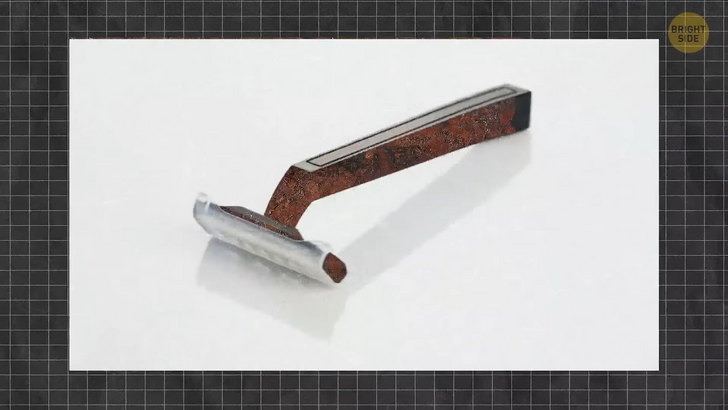I Cut Off My Parents After They Demanded My Inheritance—and I Don’t Regret It


Ever heard of lifestyle creep? It’s when the amount of money you make increases gradually, but so do your spending habits. Avoid this by automatically transferring a chunk of your income into a savings account as soon as you hit your payday.
Most financial specialists advise following the 50/30/20 rule. That means you’ll need to divide your income into 50% for the things you need, like rent or gas money, 30% for what you want, like some new clothes or entertainment, and 20% for savings or paying off debts.

An easy way to create a budget that works for you is to imagine you’re giving the money you own different “jobs”. At the beginning of any given month, all money you’ve earned in the month before should already have its designated job. If done correctly, you shouldn’t have any money “left” after the budgeting process is done.
Other small actions, like buying clothes at the end of the season, can save you a lot of money. Try shopping for winter coats during the summertime, for example, you might have fewer options to choose from, but the prices will be way better. The same small actions can apply to your grocery shopping list: try to buy generic brands, instead of name-brand ones. If you take a look at the ingredient list, you’ll see they’re just as good. But those few cents you save per each item will add up eventually.
Next time you go shopping, remember to download a free coupon app on your phone. It’s great for searching for the best prices around your area and for keeping an eye on a product you’re eager to buy, but want to wait until it gets to a reasonable pricing point. As for nonperishable items, stock your pantry up when they go on sale. You may snag discounts for things like canned beans or grains if you buy larger quantities too, or if you try buying at a wholesale market.

Those shopping apps that you regularly find yourself browsing through, do yourself a favor and take them off your phone. You’ll get rid of that pesky browse-and-buy habit, that we all slip in when we’re bored.
Next time you really want to buy a certain item, give it a week’s time. If it’s really something you need, you’ll know it in a week. If you’ve already forgotten about it in a couple of minutes, it was never worth the buy. It’s always a great idea to schedule your regular shopping too.
You’ll get way better prices if you do your winter holiday shopping, like presents or decorations during the summertime, and splurge on beach attire during the colder season. Just make sure you have enough space to store these items until they are needed.
Give your budget a rest with a no-spend weekend once a month. Enjoy leftovers from the week prior for dinner or search for free-entry festivals or events that don’t require you to pay for added transportation.

As much as possible, try to extend the life of your everyday objects, to avoid overspending on them. Let’s take your razor for example: if you shake off the excess water after you use it and store it in a dry place, you’ll help protect the blades from rust and make each razor usable for weeks at a time.
Apply the same idea to your shoes too, especially if they’re made of leather. Have them lined with rubber to keep them from wearing down too soon. Also, might skip wearing them for a day or two, since leather shoes can be affected by too much moisture. If you give them a day off and store them in a dry place, you’ll have your favorite shoes ready to wear for years.
You can save up on having to buy a new mattress if you just flip and rotate it once in a while. Every three months should do the trick. Do the same with your couch or chair cushions — swap them around every now and then. It maintains its shape for longer.
Every six months or so, take a look at your credit card bill and see if you actually use the things you’re charged for. Go ahead and cancel any memberships you haven’t used in a long time. That can mean magazine subscriptions, gym memberships, or regular payments for courses you never get the time for.

If you don’t want to skip leg day, try opting for a virtual workout. There are a lot of options you can choose from these days, from Zumba classes to yoga lessons and even kickboxing tricks. All from the comforts of home, no less
Don’t be afraid to go dark during the day or when you leave the house. Not only do you reduce energy waste, but you might also see this reflected in your energy bills. Another great idea would be to invest in energy-efficient bulbs. They can be either LEDs or CFLs which last way longer than your standard incandescent bulbs. They also use a lot less electricity.
For objects that you know you’ll be using a lot, try investing in a product that’s a bit higher quality. This can be your office clothes, some working gadgets, or even kitchen supplies if you like to cook at home. Purchasing a more expensive item that you’ll get more use out of will end up costing less than if you get a bunch of cheaper options that wear up way faster.
If you’re one of those people that are proud of their hobby and talent, know that it can potentially be bartered. Anything goes here, from mowing lawns to pet sitting, from making meals to transportation services. You might be able to use these skills to negotiate other goods or services. It’s best if you try to swap with someone trustworthy, but there are also a lot of websites these days on barter worth checking out.

Go for low or no-cost experiences whenever possible. Swap that expensive dinner date with a walk in the park. It might end up being even more romantic, not to mention you get a bit of fresh air too. Many big cities also have museums and other attractions that provide free entry on certain days of the week. Also, depending on your status, you might get certain advantages, like student discounts.
Whenever you’re ready to leave the city for a vacation, choose a destination that’s off-season. Not only will you save money, but you’ll also be able to check out these places when they’re less crowded. Travel to Europe during the colder season, it’s cheaper, or to Hawaii in the late spring or fall.
Never be afraid to negotiate the services you’re being offered. You can save a lot of money on your cell phone bills if you just ask your carrier for a better deal every once in a while. Switching to a different carrier might do the trick too, as long as you get the best out of your budgeted amount.
You’ll be surprised at how much money you’ll save by purchasing second-hand items. And you won’t have to go hunting for yard sales to do that. Start by asking your family and close circle of friends if they are looking to get rid of a certain object you’re saving up for, you might be surprised to find it. Feel free to check out pawn shops or online communities too. A lot of people are looking to get rid of their things when relocating, for example, and are giving away their things at really good prices, or even for free.

Depending on the needs of your family, you might be just as fine with a single car or a smaller one. Having two cars or a bigger one does come with extra costs because the fuel and parts are more expensive.
On the same subject, be mindful of alternative transportation options whenever they are available. Choosing a bike or a scooter might save you the hustle of traveling through high traffic and might help with your workout goals too.











